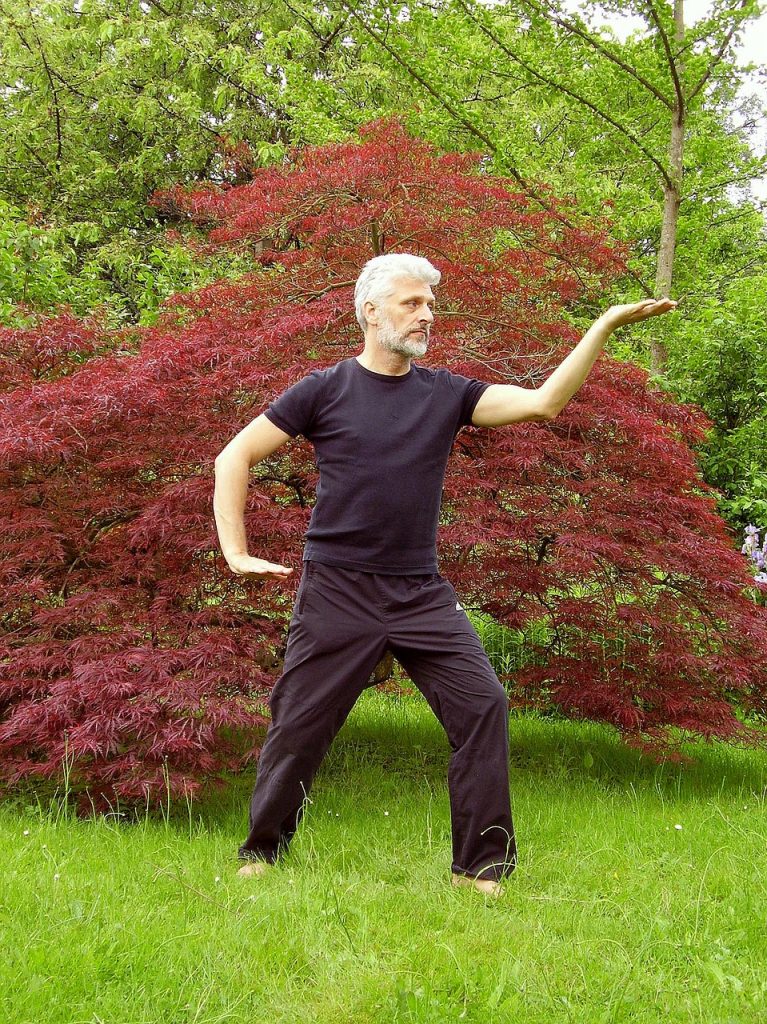I mentioned Qi Gong very briefly as part of an article about managing anxiety and stress through exercise. That article included a specific routine for strengthening the lung. Today I’m back to give a little more of an introduction to Qi Gong.

What is Qi Gong?
Qi Gong means “energy work”, i.e. working with your own life energy. It is a system of treating disease and enhancing physical, spiritual and emotional health. This is achieved through physical movement that incorporates breathing exercises, or through stationary meditation.
Qi Gong exercises are relatively simple and therefore suitable for almost all levels of physical fitness. Movement however, is only a part of the exercise. Breathing and mindfulness (really focussing in what you are doing) are also key aspects. In some cases the “movement” is “breathing” (but with mindfulness).
How does Qi Gong differ from Tai Chi?
Both Qi Gong and Tai Chi are excellent ways in which to relieve stress and improve your energy levels. They are also both based on very slow movements. This can initially be difficult to achieve for beginners, especially if you’re a busy sort of person, often found rushing from task to task to get everything done.
Qi Gong is often one simple movement (though usually built up from smaller individual elements), repeated over a certain number of times or until you feel the benefit. It can be thought of as a movement you do for a certain situation (e.g. lung strengthening). Tai chi has “forms”. Each one of which, is a series of movements that work on the entire body, in a flowing sequence. The position you take in a Tai Chi form has to be precise for the proper execution of form. Qi Gong is a little more adaptive e.g. you can modify exercises to be seated, or even lying down, which can be especially helpful for those with mobility issues.
Want to know more?
If this introduction to Qi Gong has whet your appetite, then you could look for Qi Gong exercises online, or book in for a telehealth session (please email me or text me on 07865 593972) and we can discuss which specific exercises would best suit your health goals.
Stay safe, stay well, stay home.
